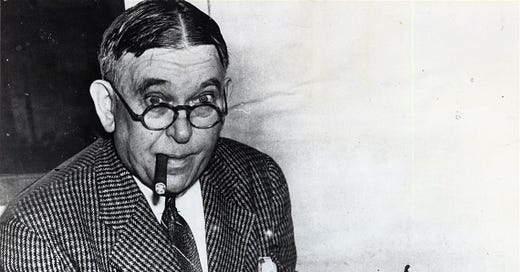Hello friends—
On Thursday, I published a new short story “Prophets” over at Joyland. The story is about Coleman, a young black writer living in Iowa City. A famous black writer comes to town for a reading and then a party, which forces Coleman into a set of uncomfortable self-examinations about blackness and art and capitalism and what it means to be a black writer in contemporary America.
Honestly, I’ve been nervous about this story publishing. It’s about black subjectivity and being a contemporary black writer. It’s about a certain kind of craven performance of blackness in art and dialogues therein. I was tempted to write the story satirizing the white people who gawk at blackness, but the deeper into the draft I went, the more interested I became in taking a really close, hard look at the other side of it. The ways I feel that even I perform not for the white gaze, but in black spaces. I wanted to articulate something about the tension between yourself and your ostensible public, how even for black writers among other black people, that can be a fraught dynamic. I wanted to write a black writer looking at another black writer and trying to get at some of the things I’ve felt and thought about. Plus, it’s just fun to write about writers.
For a very brief time, the story lived in my upcoming story collection Filthy Animals. But both my agent and editor felt that the story didn’t fit. I also got the feeling that they felt the story would be distracting. In that I think they feared the satirical element. Or that its critique was rough and unrefined. A little mean. Certain magazines also passed on the story, though they appreciated the writing. The reasons given were pretty similar to what my agent and editor said re: the satirical element. I felt anxious about the story because I hadn’t written it to be messy. I had written the story in an effort to really grapple with questions I think about as a black writer. I didn’t write it to be mean or to bully anyone. And the feedback I was getting seemed to imply that I was being mean. Or using my writing like a club, swinging it around for the thrill of of it. Like Mencken or something.
But then I read Percival Everett’s Erasure late last year because I was writing an introduction for it. And the book set my head on fire. The potency of the critique, the sharpness of the satire on multiple levels. I felt that in some ways not only had I not been mean in “Prophets” but that I hadn’t gone far enough. I felt that if Percival Everett could write a book as funny, as true, as bold, as daring as Erasure, then the least I could do was try to publish this story if I believed in it. And I did believe in it.
So I sent the story over to Joyland. A million years ago, I published a story at the site called “French Absolutism.” That story was one of my first publications, and I was so thrilled. Joyland has always had a special place in my heart. And I think they’re publishing some of the best work online right now. I was sheepish about it, because, well, I was still a little anxious. But then they took the story right away, and I was so happy.
It’s funny, the night before the story came out, I sent a friend a DM saying that I was probably going to get cancelled for the story. I didn’t really mean it, but I also didn’t not mean it. I think any time you try to tell the truth about the petty, small ways that otherwise brilliant, enlightened people behave, there’s a chance that people will only gawk instead of listening to what you have to say. Even if you do your best to have something interesting to say about the mores of your subject, even when you yourself (perhaps especially then) participate in those mores, there is a chance that people will only take it for the surface satire. The joy of pointing and laughing.
But when the story came out, people were really generous. They read the story with such care and enthusiasm, and I couldn’t be happier. I feel that the story was received in the way I hoped it would be. Not as a barb. Or a dagger. But as an honest and vulnerable interrogation of what it means to be a black writer at work today.
Anyway, I’ll be back to you guys on Tuesday with a letter, I think, about internet novels being forms of Gothic literature.
b




I very much like your writing, wherever I can find it. Thanks for linking “Prophets” here. I’m going to look for “French Absolutism” and “Erasure” now too. Scott JB
Brandon, "Prophets" that I read in Joyland moved me because of what I saw as vulnerability, Coleman's loss and discovery. Because Coleman, for me, holds the central conflict through what has happened to him, and it is Coleman who draws me, holds me, makes me see what he's seen. And then also, as with any good story, it's Coleman who changes ever slightly for sure, but for sure in that closing paragraph.